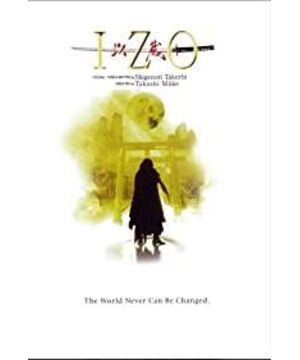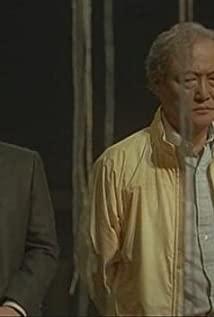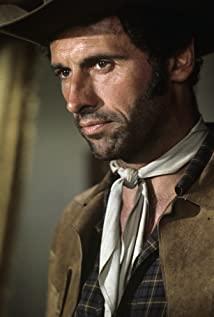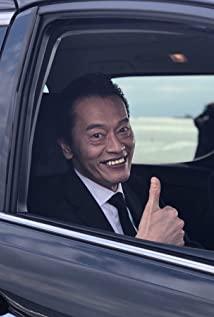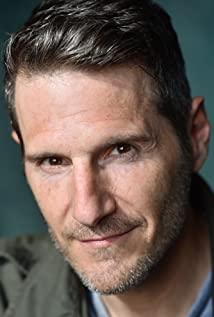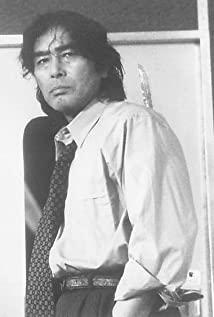But even if you have tolerated the disgust and perversion it shows, there is a good chance that you will be at a loss at the end, who is it to hide? Why does he want to kill? Why can he travel through time and space? Is this a sci-fi movie? Who are those who stopped Yi Zang? Many questions have ambiguous explanations, and in my experience watching movies, this is the most irritating situation. So with or without misinterpreting the director's intent, I had to find a framework to explain it. "Against interpretation" means a state of "forgetting to say" in the context of your understanding, not a refusal to think and understand.
To hide is an idea. It can even be said that all the characters in it are not a specific person, but some abstract concept.
There is an image of a beautiful boy in the film. He has a beautiful face and an indifferent and decadent look. He carries a snake on his back, which seems to be inseparable from him, which is a key hint. Yi Zang's ultimate pursuit target is this beautiful young man. The snake is a creature that seduces human beings. It and some of the defects of human beings - such as greed, vanity, possessiveness - embarrassed. The snake lured human beings to be driven out of the Garden of Eden, and the snake is a symbol of the fall of human beings. That being the case, can the pursuit of the beautiful young man in Tibet be understood as a symbol of removing the depraved qualities of human beings and restoring the noble qualities of human beings? Some hits, but not so ideal. At the beginning of the film, Izo has already been killed, and he was brutally executed. The bayonet was stabbed into his body one by one, and a distorted face appeared on the camera. This is also a hint that, as the opposite of the beautiful boy (representing something ugly), Izo should express some kind of righteous resistance, but he was brutally killed at the beginning of the film. What does this mean?
Here we need to use the plot of some other Japanese movies to help understand. In the cartoon "Princess Mononoke", wild boars are considered to be the guardians of the forest, they are strong and brave but fierce. At the beginning of "You", there was a wild boar with mad hair, its whole body was filled with stench and poison, and there was no grass wherever it went. Later we learned that this wild boar was the patron saint of a certain mountain forest, but the forest was cut down, and it was tortured terribly. These physical and mental torture made it lose its mind. It was no longer a god, but a man stunned by hatred. A demon with divine powers of the mind. This can help us understand Yizang, which is originally an idea that concentrates some of the best qualities of human beings, such as creativity, vitality, and thinking. But the idea of being tortured to death was swept away by hatred, it lost its restraint, it wanted revenge, it wanted to find the culprit, and those who blocked it would die. That twisted face suggested it.
Well, so far, the whole story is clear. First of all, Izang and the beautiful boy are a pair of opposing ideas, representing the good and ugly qualities of human beings respectively. At the beginning of the battle, the beautiful boy won. He brutally killed Izang, thinking that he would be able to dominate the world. But the idea is not dead, and the fire of revenge in Tibet has burned the sky of history.
What follows is an understanding of some branches and details. First of all, how does the beautiful boy control the world. We see a cabinet-like body in the film, with members of the cabinet respecting the teenagers. It's a symbol. If you look closely, there are a total of six cabinet members. From the conversation, we know that some of them are bishops, some are generals, and some are literati. In fact, they just represent religion, politics, military, law and ideology respectively (the other being the prime minister). In this case, it seems to be predictable who Yi Zang is going to kill. Here, the director pointed the spearhead that caused human beings to lose their freedom sharply to almost all the rules and regulations of this society, and he wanted to use the hidden blade to disintegrate them all. So we see Yi Zang kill the monks and pee in front of the monks to show contempt; (religion being killed in the first also implies the decline of the power of religion in modern society) We see him killing those arrogant bureaucrats; see I saw that Izang killed myself and the judge who tried him before the court; I saw that Izang killed the teachers who instilled national ideology in the children; I saw that Izang killed all the regular armed forces and gangsters in history. ; We even found in horror that the director even denied love and family, because Yi Zang also killed his old lover and his mother. What a horrific scene this is, everything that exists deserves to be cursed, all living things deserve to be killed, all emotions are nothing but tools to control others, the director used his sharp and terrifying images to depict us Such a doomsday picture of human beings taking revenge on themselves. But is Yi Zang happy? No, he is in pain and struggling, because all the things he kills are actually part of him. Every time he kills, he experiences a kind of freedom of breakthrough and revenge, and also feels Life is being slowly killed by itself. So the director arranged for a wandering guitarist to sing in order to hide the sadness in the heart, which is a kind of peerless sadness (more should be the heart of all human beings).
Yi Zang can travel through time and space because he is an idea. Because this kind of contradiction in human society will inevitably exist in any historical period, people are bound by various shackles created by themselves, and human nature is destroyed, so human nature takes revenge on itself in the form of violence, and finally destroys everything. That's what's so profound about this movie. If you understand this, in those killing scenes, you don't see blood, you see sadness.
In this way, the ending of the film is vaguely predictable. Humans who break free from all shackles will inevitably go to nothingness and perish. The director cannot solve this problem that has plagued human beings for thousands of years, and finally ends in hiding and perishing. But the director left hope to the world. He let the new Yi Zang be born from the mother's body, naked, like an angel of freedom. After all, starting from scratch, everything is possible. At the moment of childbirth, the womb that gave birth to Izang emits a dazzling light, which is the light of human beings.
Blog: http://www.mtime.com/my/Lyeast/
View more about Izo reviews


